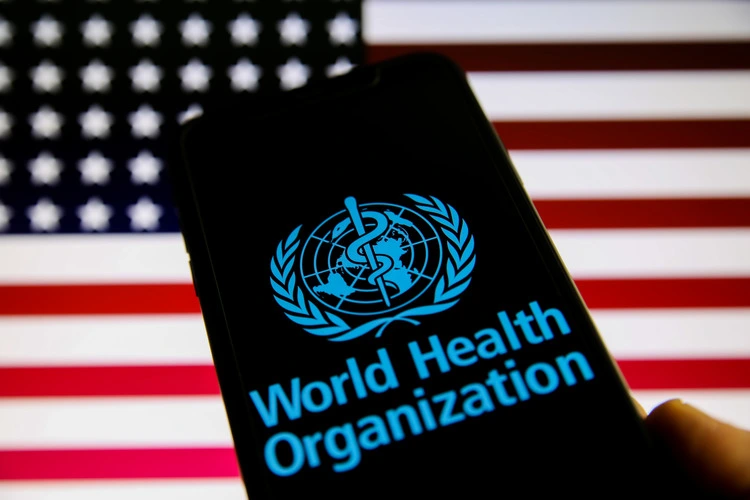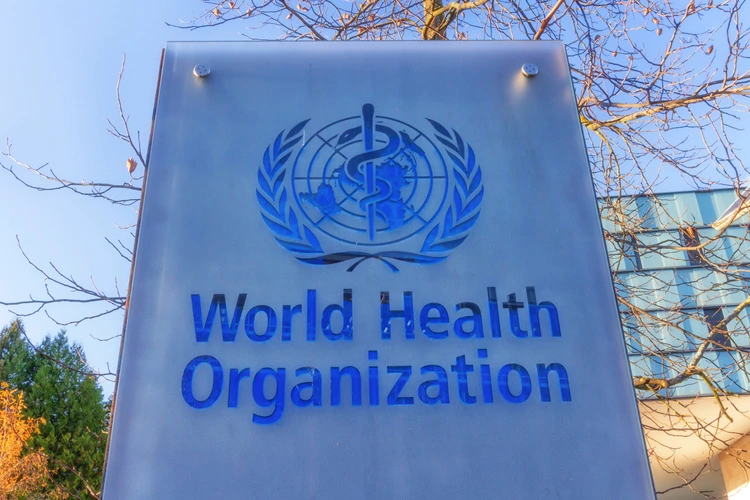
Trump announces US withdrawal from WHO for second time – but what implications could this have for the organisation?
By
‘World Health ripped us off, everybody rips off the United States. It’s not going to happen anymore.’ These were the words of newly-elected President Trump at the signing of an executive order to withdraw the US from the World Health Organisation (WHO) earlier this week.
This marks the second time Trump has pulled away from the organisation, with his first exit decision reverted by Biden back in 2021 following a Democrat win in the US.
Enjoying this article? Check out our related reads:
President Trump had previously accused the WHO of being ‘China-centric’ and that it did not hold China accountable for the early spread of Covid-19. As well as this, a recent White House statement detailed the ‘unfairly onerous payments’ the US gives to the organisation, all factors leading to a repeat of Trump’s first planned exit five years ago.
If Congress approve Trump’s decision to leave – likely, since it has a Republican majority – the US would officially withdraw in 12 months, the length of the notice period required before the country can formally exit.
So, is it possible for the WHO to function without its largest donor and key player?
A serious strain on funding
Since its inception back in 1948 – in which the US was a founding member – the WHO has been involved in improving the health of millions around the world. One of its most notable projects was the eradication of smallpox in 1979, as well as countless other initiatives and programmes. However, for the WHO to carry out such activities, it relies on funding.
This is received in two ways: either via member states paying assessed contributions, or voluntary contributions (which can come from member states, along with charities, NGOs and other organisations). Assessed contributions are calculated as a percentage of a country’s GDP.
The US is the largest donor to the WHO, and has been for decades, providing both assessed and voluntary contributions amounting to one-fifth of the organisation’s annual budget of $6.8 billion. To put it into perspective how major the US’s financial support is to the WHO, their total contributions are hundreds of millions of dollars greater than the second-largest member state donor, Germany.
Among the other largest WHO contributors are the Bill & Melinda Gates Foundation, global vaccine group Gavi, the European Commission and the World Bank. However, if the US departed from the WHO, it would be unlikely that the funding gap left could be filled by these donors.
‘America is going to leave a huge vacuum in global health financing and leadership. I see no one that is going to fill the breach,’ said director of the WHO Collaborating Centre on Global Health Law at Georgetown University Lawrence Gostin.
Back in 2021, the US donated 1.5 million Covid-19 vaccinations to Honduras under the WHO’s COVAX initiative – created to ensure equitable access to Covid-19 vaccines worldwide. The country has also supported WHO programmes to fight diseases including AIDS, malaria and tuberculosis.
Ultimately, funding from the US is vital for the WHO’s goal of securing global health security and stability, successfully surveilling diseases, and implementing robust emergency response systems, such as during the 2014-2016 Ebola outbreak in West Africa.
Without it, WHO programmes may be put in serious jeopardy – a lack of financial aid may require changes to operations in ways that could compromise the effectiveness of protecting public health.
As Gostin warns, following a US exit there would be ‘very lean years for the WHO where it will struggle to respond to health emergencies and will have to reduce its scientific staff considerably.’
Reduced scientific collaboration
A US departure from the WHO would also sever the symbiotic relationship between the organisation and major American public health bodies such as the Centers for Disease Control and Prevention (CDC) and the Food and Drug Administration (FDA). Currently, these US bodies guide the WHO on a plethora of topics and, in return, receive valuable scientific information from the WHO.
Cutting off these important ties could not only leave the US in the dark about key global health issues – such as pandemics, the development of vaccines and emerging diseases – but impede the success of these collaborative efforts between US bodies and the WHO, potentially harming successful disease control and prevention as well as policy development across the world.

While the WHO would continue to operate, the implications of such a glaring absence may not be fully realised until a larger public health crisis takes place.
According to virologist Marion Koopmans, an expert on emerging infectious diseases at Erasmus Medical Center in the Netherlands, the US leaving the WHO ‘would isolate the CDC from a lot of intelligence that is crucial for [the US’s] global security.’
An uncertain future
Rather than pull out of the organisation, former White House Covid-19 response coordinator Ashish Jha believes the US should instead use its leverage to strengthen the WHO, advancing reforms to ensure the health agency focuses on core functions, has better leadership practices and more transparent financing models. But, for now, Trump’s focus is keenly pointed in another direction, one that seeks to remove the US’s membership from the agency.
If Trump’s executive order to leave the WHO is approved by Congress, such a decision poses a clear financial blow to the health organisation. As one-fifth of its funding would disappear – and with other countries not expected to foot the monetary loss – that leaves the agency in a precarious state for addressing some of the world’s most pressing public health issues.

Along with this, the rippling repercussions of reduced scientific collaboration spell likely bad news for both the US and WHO alike.
Some are holding out that the US may eventually return to the WHO, following Trump’s remark at the signing of the executive order, in reference to the agency: ‘They wanted us back so badly so we’ll see what happens.’ Only time will tell if negotiations or further talks occur between them both.
All things considered, it is likely a US departure would plunge the WHO into an unclear future, one in which it would need to reshape itself to accommodate for a gaping hole left by one of the largest nations in the world.




